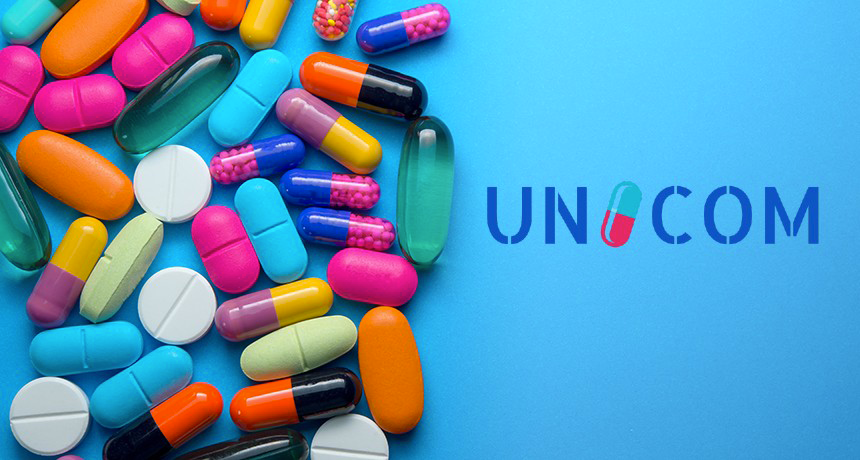TeNDER project’s consortium seeks to empower patients, helping them to monitor their health and manage their social environments, prescribed treatments, and medical appointments. The system also facilitates communication across each patient’s care pathway.
Continue readingHow Blockchain Could Unlock Better Health Data
Today patient data remains scattered across a variety of organizations and facilities. But blockchain could break the siloes which currently make the transmission of health information slow and disorganized. By turning to blockchain technology, the health industry has the potential to realize the interoperability it needs.
Continue readingHow Artificial Intelligence is Winning the Battle Against Cancer
Artificial intelligence is becoming a key feature of modern medicine. In fact, it is transforming the practice. Cancer detection, for one, is dramatically improving thanks to AI technologies, and as a result, tens of millions diagnosed with cancer each year now have a greater chance of survival.
Continue readingHow Covid-19 Spurred a Digital Health Renaissance
The COVID-19 pandemic is the greatest health care challenge humanity has faced in living memory. Still, for all the pains the coronavirus unleashed on the world this last year, it also has been a catalyst for much-needed change, encouraging innovations in health care.
Continue readingPatient Engagement: How Datawizard Will Help Design Patient-Centered Digital Services in EU Project Gravitate-Health
After an extensive study back in 2013, Datawizard concluded that the key to Patient Empowerment is delivering trusted health information to people in a way that is easily accessible and understandable.
Today, not only has this concept has been widely accepted but it has become a fundamental principle in the development of new patient-centered healthcare services, in particular Digital Health services. This is largely due to the “Dr. Google” phenomenon: when health problems, concerns and questions arise, people’s go-to source for information is Google. However, it’s not easy to validate that the answers you find come from trusted sources.
Therefore, the need persists for citizens, particularly EU citizens, to have easy access to trusted sources of health and medicine information that are up-to-date, certified, easy-to-navigate and easy to understand.
Gravitate Health: Better awareness leads to better health
In this context, the European Commission and EFPIA (European Federation of Pharmaceutical Industries and Associations) released an Innovative Medicine Initiative call for projects (IMI-2019-18-03) in 2019 with the primary goal of improving patient access, understanding and adherence to healthcare information, calling it an integrated Digital Health information project.
Datawizard is very proud to be part of the project selected for this call called GRAVITATE HEALTH, representing a diverse consortium of many stakeholders such as Pharma companies, health and medicine experts, doctors, pharmacists, regulators, standards bodies, academic researchers, psychology/behavioural experts, universities and SMEs with the mission to equip and empower citizens with digital information tools that make them more confident, active, and responsive in their health journey.
Datawizard is the only Italian SME company involved in the project with the crucial role in designing and developing the digital services that help to foster the safe use of medicines for better health outcomes and quality of life.
The team includes 30 partners spread over 13 countries and a wide range of stakeholders. Other Italian partners include the Engage Minds Hub of University Sacro Cuore, Milan, with their leading expert on behavioural psychology and therapy adherence.
Gravitate Health was the only proposal out of many to be selected in Stage 1 of the two-stage process in December 2019 and will submit their Stage 2 statement in early 2020 in collaboration with Pharma Companies from EPFIA.
The Gravitate Health Mission
The principal objective of the project is to demonstrate how the use of an integrated, digital, user-centric health information solution with two-way communication could enable tangible improvements in accessibility and understanding of health information from available trusted sources, starting with the medicinal product information (ePI, SmPC, EPAR), EHR- IPS, and Medicinal compendiums.
The secondary objective is to demonstrate that the improved availability and understanding of health information from trusted sources translates to higher levels of adherence to treatment, safer use of medication, improving pharmacovigilance, better health outcomes and quality of life, and new insights into how use of health information can be optimized to act as effective risk minimization measures.
Gravitate Health’s innovative concept is to focus, not conceal or filter, normative ePI content to the user. It is more than a research project because it will help define how to measure the impact of personalised healthcare on a patient’s life and health outcomes. This is a key component that will help guide the future of health and home-care policies in the EU, which will be increasingly relevant as the demand for healthcare rises due to Europe’s ageing population. Datawizard looks forward to contributing our expertise to such an important initiative.






